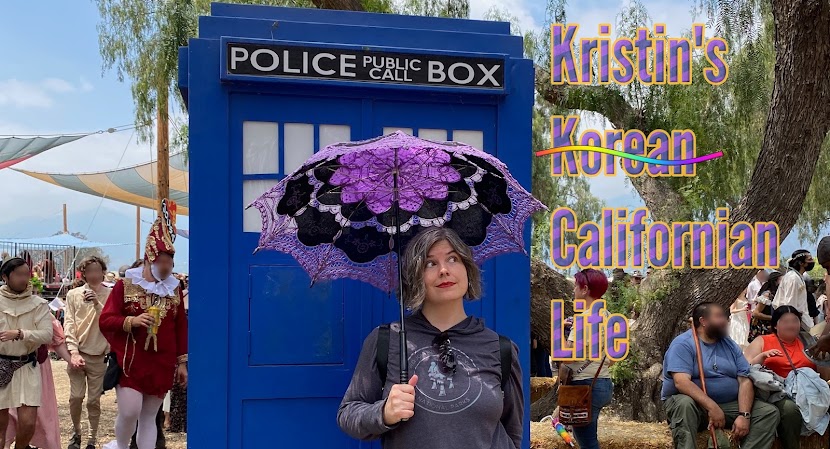Korea has a proud 5000-year history, and one of the things that includes is medicine similar to (and sometimes exactly the same as) TCM, or Traditional Chinese Medicine.
Korea also has an amazing healthcare system subsidized by the government so they have a doctor's visit for less than $5 and get medicine for the same price.
Korea is also now an OECD country and technologically advanced, with a thriving biomedical industry.
What does this mean for minor sicknesses?
It means that if you have a little pain or a slightly runny nose, you go to any local clinic with, or usually without, an appointment. These clinics are separated by specialty so if your stomach hurts and your nose is stuffy, I'm not sure if you go to the internal medicine clinic or the "nose, mouth, and throat" clinic. Maybe a large hospital is a better idea.
Anyway, when you get there, because everything in Korea is crowded and fast-paced, you get ushered into a room where everyone hears each others' diagnosis, and each diagnosis takes about one minute flat. Than you get to sit with some machine in or near a part of your body for a few minutes, followed by paying pocket change at the desk and getting your machine-printed prescription.
You go to the nearest pharmacy and give them your prescription paper, and they come back with little pockets filled with anywhere from 3 to 7 pills each, attached at the ends with perforation like string sausages. You're instructed to take the a whole packet 3 times a day after meals for 3 days and when you run out of medicine if you don't feel better just go to a doctor again.
Kudos for efficiency. But why all the pills? I'll tell you a few reasons why.
One, medicine is cheap. If the cost is low, they aren't stingy.
Two, they're not all biomedical. They're usually a mix of biomedical and traditional Korean medicine.
Three, the doctors get benefits for prescribing drugs from the pharmaceutical companies that sell them. Although regulations have been tightening in recent years, the traditional method of marketing medications to doctors in Korea could include buying an iPhone for a doctor or paying for a doctor's family vacation. Just as a disclaimer, my company doesn't do that kind of thing and never has (our HQ is in Europe so we follow their code of conduct).
Four, patients feel like they don't get enough time with the doctor so they need to get something out of the visit. If they're given a billion "magical" pills, they feel like they're getting their money's worth (all $7 total) and they feel like they're going to get better. This especially applies to the older, less educated sector of Korean society that doesn't understand how medicine works (or doesn't) and just believes in it blindly. That sector of society is a result of rapid development, and there are books on that topic if you're interested so I won't go into it in detail here.
As a note to travelers: even if you don't have insurance, healthcare is quite cheap here. Depending on the cost of traveler's insurance and the benefits it pays out, I would almost recommend not even getting traveler's insurance if your only destination is Korea. My broken nose three years ago cost about $300 including X-ray, stitches, a week of follow-up visits and medicine, and a free follow-up a month later. Without insurance. Minor problems without insurance here tend to cost about the same as a copay in the US (another disclaimer: I haven't lived in the US for about 3 years and I know healthcare is changing, but I don't know how much. Just think of a copay 3 years ago).
That's it for my little note on medicine for minor problems in Korea. I put this in the Korean Everydayness category because Koreans go to the doctor all the time. They don't have separate words for hospital and clinic or doctor's office in Korean, so most foreigners are shocked that their Korean friends and coworkers have to go to the hospital at least once a month. It's like everyone in this country is chronically ill! No, it's just minor health issues, and that's also why they have pillboxes and random Korean medicine that smells funny all over their desks.

No comments:
Post a Comment